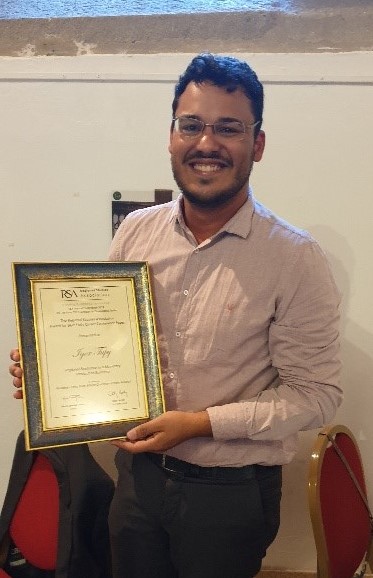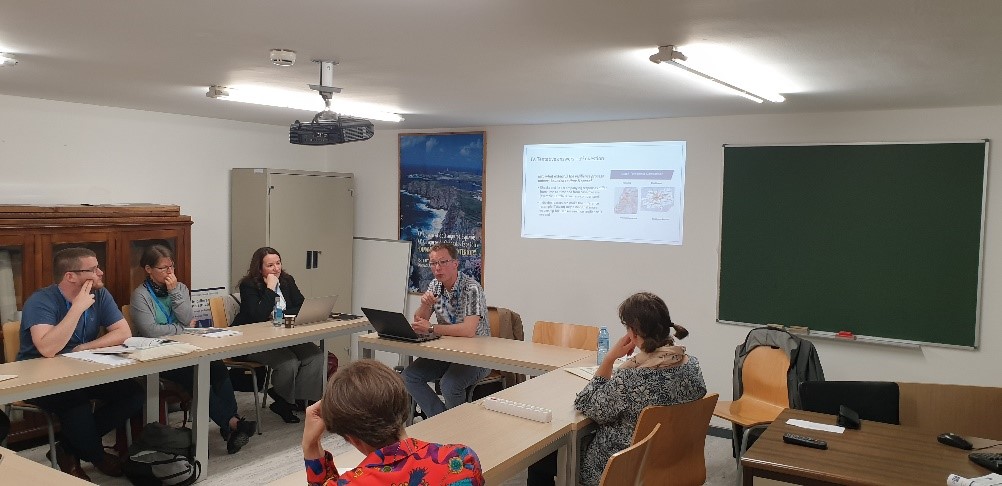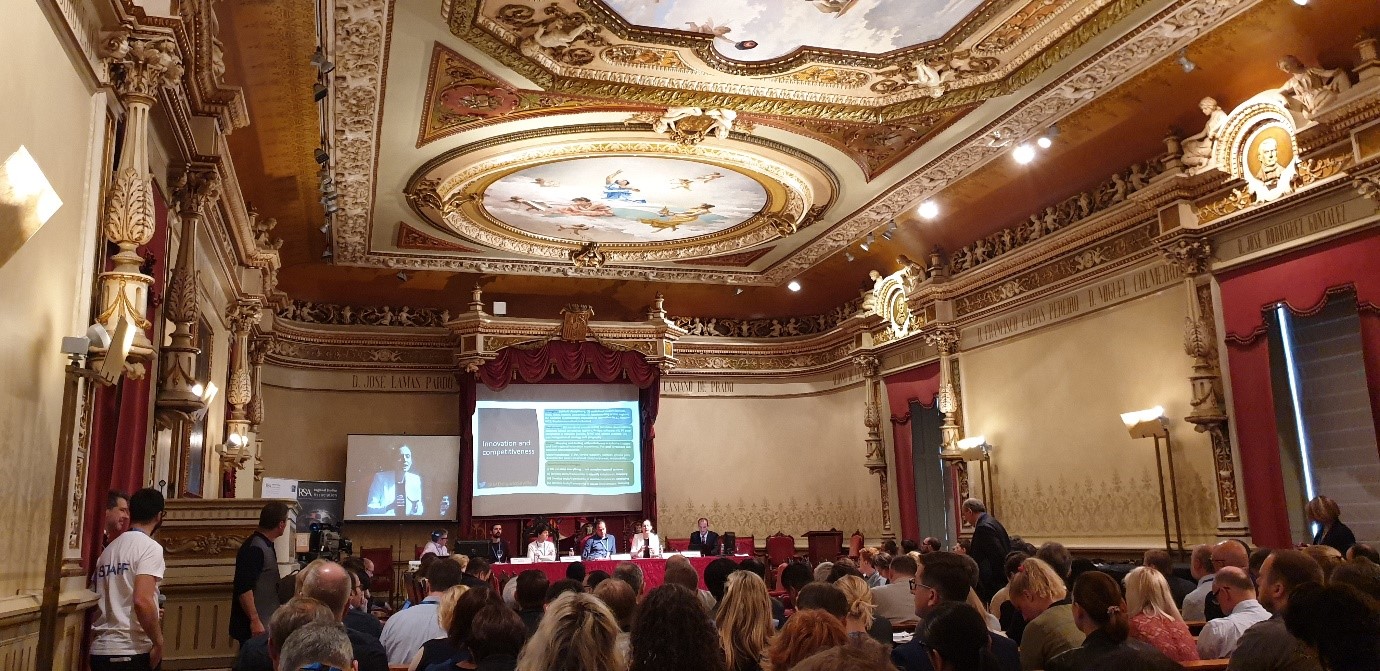Tasos Kitsos reflects on this year’s Regional Studies Association’s annual conference in Santiago de Compostela.
Every RSA conference is a great opportunity to meet old friends, make new, discuss research and engage in new collaborations. This one was particularly excting since it was the first time I was involved in organising a special session. Together with Raquel Ortega-Argilés we hosted Special Session 20 on Regional Economic Resilience: Latest Developments and New Research Frontiers. This gave me the opportunity to present my paper with André Carrascal-Incera and Raquel on the role of local economic embeddedness on regional resilience and receive useful feedback and ideas for further research.
Apart from presenting our own research, we had the honour to host three very interesting presentations on resilience. With a room full of engaged researchers on the topic, it was a great experience to chair the session and meet the contributors. And it even led to an award!
Marijn Molema from the Fryske Academy presented his work with Emil Evenhuis and Ramon Ramon-Muñoz examining how economic and business history can inform research on regional economic resilience. History can provide context and help us understand the time and place differences of shocks as well as regularities in effective resilience responses. The research was enabled by an RSA network grant and will soon be published in a special issue, so keep an eye out for it or get in touch with Marijn.
 Next up was Igor Tupy from the Federal University of Viçosa, presenting his research with Marco Crocco and Pedro Amaral on regional resilience in a monetary production economy. Igor argued that money is seen as a minor consideration in resilience research to date. Yet, he suggests that money, the regional financial system and its understanding and use by local agents can be central to the resilience performance of a place. He then proposed a framework of resilience where money is a driver of the capacity of a place to adapt. For his work, Igor won the RSA’s Best Early Career Paper Award. Despite my poor camera skills, you can see he was very happy. It was great that resilience research was recognised as a central frontier of the field and we were very happy he was in our special session.
Next up was Igor Tupy from the Federal University of Viçosa, presenting his research with Marco Crocco and Pedro Amaral on regional resilience in a monetary production economy. Igor argued that money is seen as a minor consideration in resilience research to date. Yet, he suggests that money, the regional financial system and its understanding and use by local agents can be central to the resilience performance of a place. He then proposed a framework of resilience where money is a driver of the capacity of a place to adapt. For his work, Igor won the RSA’s Best Early Career Paper Award. Despite my poor camera skills, you can see he was very happy. It was great that resilience research was recognised as a central frontier of the field and we were very happy he was in our special session.
Last up was GSSI’s Simone Maria Grabner, presenting her work on industrial resilience in the USA. Simone uses an evolutionary perspective of resilience as adaptation and considers a region resilient when it encourages structural change and develops new growth paths. She uses advanced quantitative techniques on 3200 US counties and 650 five-digit NAICS codes to identify differential industrial resilience performance across US counties. She also econometrically examines the effect of related and unrelated variety on the among differential resilience outcomes. The research is part of Simone’s PhD, which from the looks of it, will have a significant contribution to resilience research.
 Special mention is warranted to Simone and Igor’s involvement in the Young Scholars Initiative – Urban and Regional Economics Working Group. They do great work organising webinars, workshops and meetings and I look forward to further engage with them in this respect. You may want to do that too. The next event can be found here.
Special mention is warranted to Simone and Igor’s involvement in the Young Scholars Initiative – Urban and Regional Economics Working Group. They do great work organising webinars, workshops and meetings and I look forward to further engage with them in this respect. You may want to do that too. The next event can be found here.
Other, City-REDI related highlights of the conference were Chloe Billings’ presentation of a productivity project, examining the trade-offs, complementarities and policy challenges on productivity and inclusive growth promotion. Raquel Ortega-Argilés presented her work with Silvia Rocchetta and Dieter Kogler on the non-linear effects of relatedness on regional performance. Anne Green discussed work with George Bramley on the challenges of out-migration and demographics on securing NHS staff in England’s rural areas whilst I also presented my work with Antonios Proestakis on the role of political alignment on intergovernmental transfers in Greece.
My presentation was part of a special session on the importance of politics for regional development. It has provided me with very useful comments to take forward in future research whilst I met old and new colleagues to discuss further collaborations.
Attending RSA’s conference and organising this special session on regional economic resilience this year was part of my Economic and Social Research Council (ESRC) Postdoctoral Fellowship (ES/S011226/1). I am really grateful for the support from ESRC and looking forward to seeing colleagues and friends in the near future.
By Dr. Tasos Kitsos, Research Fellow, City-REDI, University of Birmingham
To sign up for our blog mailing list, please click here.
Disclaimer:
The views expressed in this analysis post are those of the authors and not necessarily those of City-REDI or the University of Birmingham

